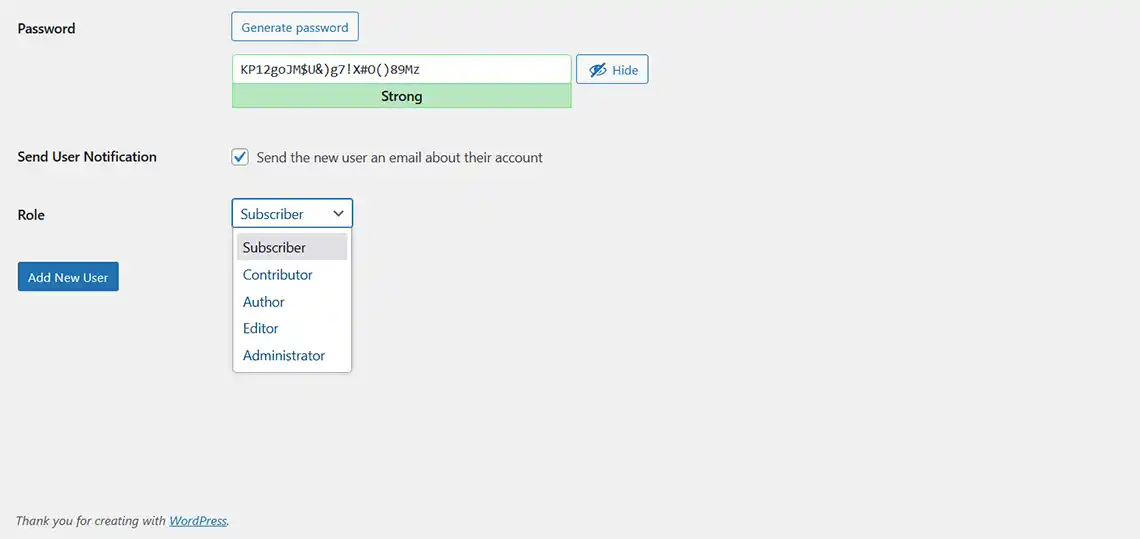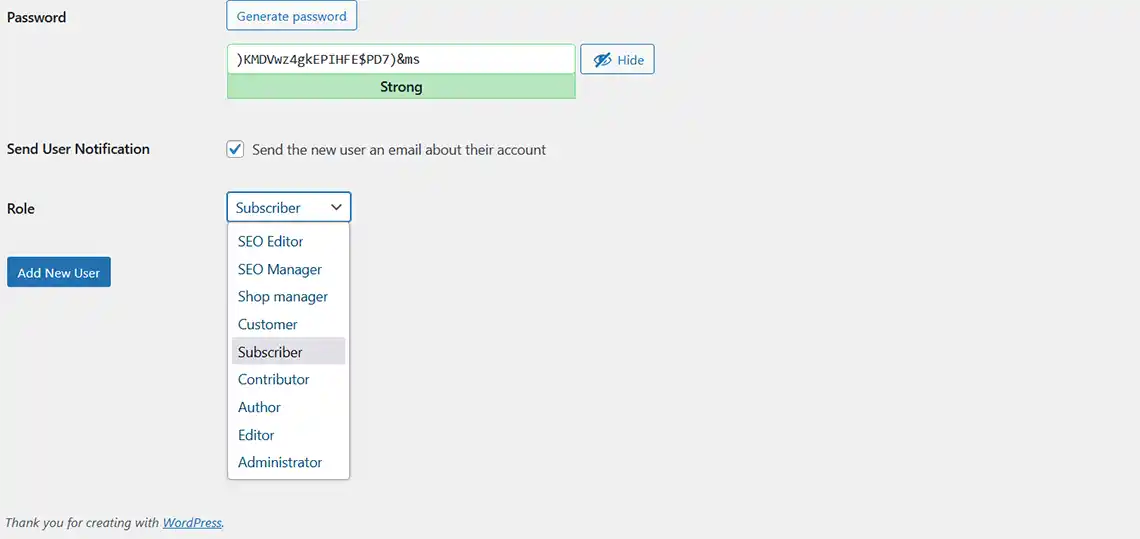
As I have mentioned in previous articles, WordPress is undoubtedly the most popular web publishing platform, with almost a billion of such websites worldwide. That means many people will be introduced to WordPress for the first time, as they launch their business or personal WordPress websites.
What are User Roles?
An increasingly popular question, that even our own clients have been asking, is to explain what User Roles are. In a nutshell, User Roles is the system used to manage a WordPress website’s “back end” access using various levels of permission. What do I mean? Here is a more detailed explanation. User Roles in WordPress are predefined sets of capabilities that determine what a user can and cannot do within a WordPress website’s admin area. They dictate things like creating blog posts, managing comments, installing plugins, and even accessing sensitive site settings. By assigning roles, you can distribute responsibilities and prevent unauthorized access to critical functions.
Why are User Roles Important?
Now that User Roles in WordPress have been defined, let me provide a few reasons why they are important.
Security
Obviously, securing access to your WordPress website is a good idea. Thus, limiting access based on roles can significantly reduce the risk of accidental or malicious damage to your website. For example, you probably would not want a guest blogger to accidentally delete your entire media library, would you? Thus, assigning a role that prohibits access to your media library would prevent such an occurrence.
Organization
User Roles can also help you to delegate tasks and streamline workflows. Thus, member of your team can focus on their specific responsibilities without being overwhelmed with options they simply do not need.
Control
User Roles help to maintain control over your website’s content, design and functionality by granting appropriate levels of access based on user needs. Thus, only trusted administrators should have the highest level of user role access.

The Five Default WordPress User Roles
WordPress comes with five default User Roles, each with increasing levels of access and responsibility.
Subscriber
The most basic role. Subscribers are only permitted to manage their own profile information. They can subscribe to your blog and receive updates, but they can’t create or edit content.
Contributor
Contributors are allowed to write new posts but they cannot publish them. Their work needs to be reviewed and published by an Editor or Administrator. This role is ideal for guest bloggers or new content creators.
Author
Authors can write, edit and publish their own posts. However, they cannot edit or delete posts created by other users. This role is suitable for regular bloggers who have proven to be trustworthy.
Editor
Editors have full control over all posts, including those written by other users. They can edit, publish and delete any post within the website. They also have the ability to manage post comments and categories. This role is ideal for content editors or managers.
Administrator
Administrators have the highest level of access, and as such, have complete control over the entire WordPress website. This means an administrator can manage users, install plugins and themes, modify settings and do just about anything else they would like within the website. Admin is usually assigned to the web developer or webmaster.
Creating Custom User Roles
While the default roles cover most common scenarios, you might need to create custom User Roles to suit your specific needs. This can be achieved using plugins like “User Role Editor”, “Members”, “WooCommerce” or “Yoast”. These plugins allow you to create new User Roles with customized capabilities, giving you even finer-grained control over user access. For example Yoast SEO, will add custom User Roles such as “SEO Editor” and “SEO Manager”. WooCommerce adds in custom User Roles such as “Shop manager” and “Customer”.
As you can see, User Roles in WordPress serve a valuable function that can help a website owner, manage and protect their website.
